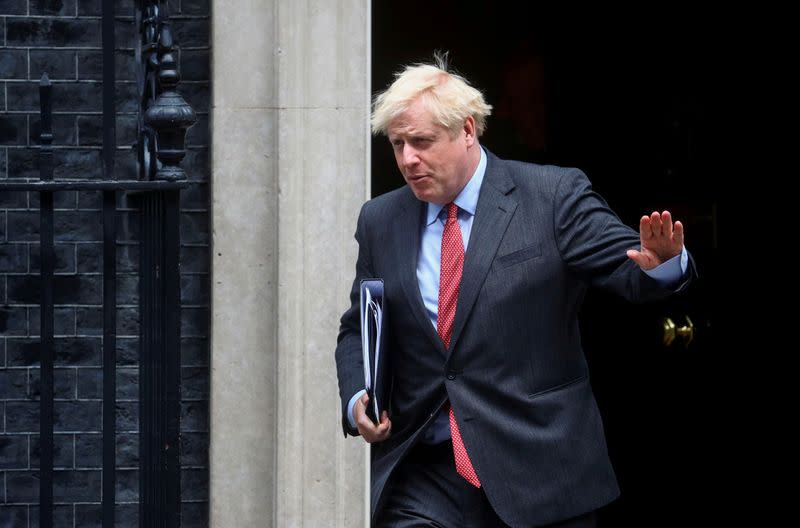UK's Johnson lines up two critics of BBC for big media roles - Times

LONDON (Reuters) - British Prime Minister Boris Johnson wants to appoint two Brexit-backing critics of the BBC to important roles in the media, including one as chairman of the publicly owned broadcaster itself, the Times reported on Saturday.
The newspaper said Johnson had asked Charles Moore, a former editor of the Daily Telegraph, to become the chairman of the BBC and wanted Paul Dacre, a former editor of the Daily Mail, to be chairman of media regulator Ofcom.
The BBC is entering a crucial period in its history, with some lawmakers attacking its universal funding model and online giants Netflix and Amazon posing a new threat.
"This is part of a process of the prime minister putting allies in key positions," the newspaper quoted one source close to Johnson as saying.
Applications for the roles are due to open shortly. Of the BBC position, a spokeswoman for the Department of Media said: "It is an open recruitment process and all public appointments are subject to a robust and fair selection criteria."
The spokeswoman had no comment about the Ofcom role.
Moore and Dacre both led right-wing dailies and have accused the BBC of a left-wing bias and a willingness to go beyond its core remit of providing public service broadcasting. The BBC has denied the criticism.
The BBC is widely respected globally but it has clashed with members of Johnson's governing Conservative Party who accuse it of being out of touch with the country, particularly over Britain's departure from the European Union.
With critics circling, its new director general, Tim Davie, has told staff they should not air their own political views on social media and staff should not expect any further expansion.
Johnson, a former journalist with the Telegraph, has questioned why the BBC should continue to be supported by an annual fee paid by all viewing households.
The BBC's television, radio and online content reaches 92% of the population, and its news and programmes, such as sci-fi drama "Doctor Who" and natural history documentaries pioneered by David Attenborough, have shaped Britain's culture.
It argues that the licence fee allows it to deliver hard-hitting news and entertainment while remaining independent from the state. The broadcaster has secured the income until 2027 when its charter expires.
Ofcom regulates the British media industry, including the BBC, to ensure they provide impartial news.
(Reporting by Kate Holton; Editing by Timothy Heritage; Editing by Alison Williams)

